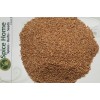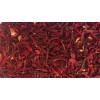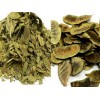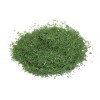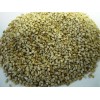埃及红辣椒
拉丁名:Capsicum annum, Fam. Solanacea
味道:苦辛辣味
用途:用于各种菜肴,开胃菜,和其他药用用途。
可供:整椒、粉状、碎片
药用用途:辣椒具有解热镇痛功效。辣椒辛温,能够通过发汗而降低体温,并缓解肌肉疼痛。辣椒具有促进血液循环的作用,可以改善怕冷、冻伤、血管性头痛等症状。辣椒的有效成分辣椒素是一种抗氧化物质,能降低癌症细胞的发生率。辣椒含有丰富的维生素C,可以控制心脏病及冠状动脉硬化,降低胆固醇。
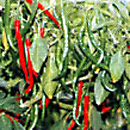

![]()
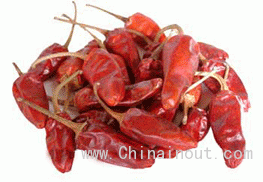
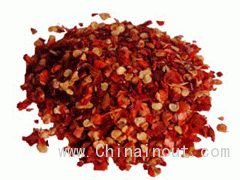
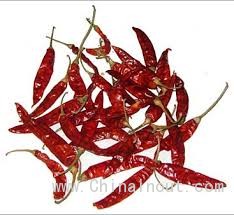
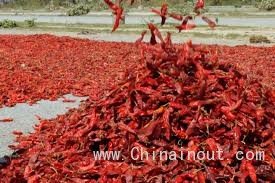
Chilli
Latin Name :Capsicum annum, Fam. Solanacea
Sensoric quality :Bitter pungent taste
Main constituents :Flavonoid Glycosides
Uses:
Hot spice used in various dishes, appetizer, and other medicinal uses.
Availability : Whole, powder, crushed
Medicinal Uses: Counter Irritant in Rheumatic Diseases.
Package : Paper bags .. inner plastic
Health benefits of cayenne peppers
Although inherently hot and intolerable even in small amounts, cayennes are one of the health-benefiting spice items concentrated with minerals, vitamins and certain phyto-nutrients. It is no wonder this wonderful spice has been found a place in modern as well as in traditional medicines for its disease preventing and health promoting properties.
Cayenne contains health benefiting an alkaloid compound capsaicin, which gives strong spicy pungent character. Early laboratory studies on experimental mammals suggest that capsaicin has anti-bacterial, anti-carcinogenic, analgesic and anti-diabetic properties. When used judiciously it also found to reduce triglycerides and LDL cholesterol levels in obese individuals.
Fresh cayenne peppers, red or green, are rich source of vitamin-C. 100 g fresh chilies provide about76.4 mg or about 127% of RDA. Vitamin-C is a potent water soluble antioxidant. It is required for the collagen synthesis in the body. Collagen is the main structural protein in the body required for maintaining the integrity of blood vessels, skin, organs, and bones. Regular consumption of foods rich in vitamin C helps the body protect from scurvy; develop resistance against infectious agents (boosts immunity) and scavenge harmful, pro-inflammatory free radicals from the body.
Cayenne chili peppers are perhaps the richest source of vitamin A among spice. Just 100 g of cayenne has 41,610 IU or astoundingly 1387% of vitamin A. In addition, this prized spice is also home for anti-oxidant flavonoids such as carotenes, lutein, zea xanthin and cryptoxanthin. Together, these antioxidants in capsicum help to protect the body from injurious effects of free radicals generated during stress, and disease conditions.
The spice contains very high levels of essential minerals. The spice if even consumed in small quantities regularly would provide sufficient levels of iron, copper, zinc, potassium, manganese, magnesium and selenium. Manganese is used by the body as a co-factor for the antioxidant enzyme, superoxide dismutase. Selenium is an anti-oxidant trace element required by the human body for smooth heart and liver functions.
100 g of cayenne peppers provides 2014 mg or 47% of a daily-required amount of potassium. Potassium is an important electrolyte in the cells and body fluids that helps controlling heart rate and blood pressure. It thus counters the bad effects of sodium.
Cayenne peppers are also good in B-complex group of vitamins such as niacin, pyridoxine (vitamin B-6), riboflavin and thiamin (vitamin B-1). These vitamins are essential in the sense that body requires them from external sources to replenish. B-complex vitamins facilitate cellular metabolism through various enzymatic functions.
Cayenne peppers have amazingly very high levels of vitamins and minerals. Just 100 g provides (in % of Recommended daily allowance):
127% of vitamin-C (Ascorbic acid),
39% of vitamin B-6 (Pyridoxine),
54% of niacin,
71% of riboflavin,
1387% of vitamin A,
97.5% of iron,
41% of copper,
43% of potassium,
but no cholesterol.








 [全球VIP第11年] 指数:2
[全球VIP第11年] 指数:2
 中国区伙伴
中国区伙伴